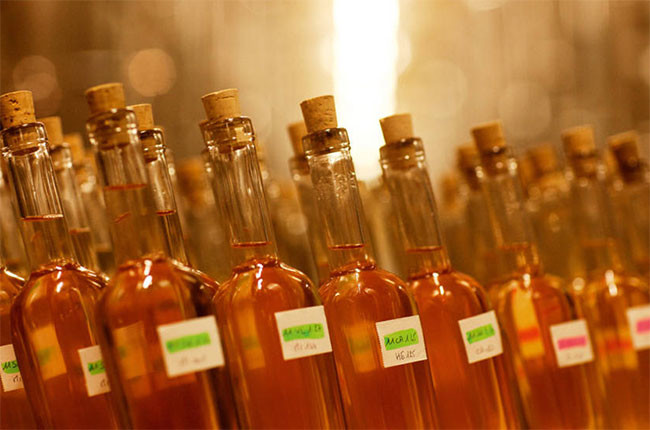How do you keep your decanter crystal-clear over time?

Keeping decanters clean
Graham Woodham, Surrey, asks: Having failed to find a way of restoring an antique decanter to sparkling clear glass, I’ve bought a new lead-free crystal decanter.
Can you recommend a way of preventing this one from discolouring with repeated use? Failing that, what is the best way of cleaning it when it does become stained over time?
Maximilian Riedel replies: Modern, high-quality crystal made by top manufacturers is far superior in this respect to antique crystal, so the good news is that your new purchase should stay looking good for longer.
Don’t let residue dry
If you like your decanter to be clean and sparkling every time, the first rule is never to leave wine residue to dry. Even if you can’t wash it straight after use, fill the decanter with water, leave it overnight and give it a good clean the next day.
When hand washing a crystal decanter, always use soft water with a low mineral content to get that all-important sparkle and help avoid water stains.
What I do is take some warm water, pour it into the decanter and swirl it round before emptying it into your sink. Repeated a few times, that should do the trick. Any stubborn stains can be removed with glass cleaning beads*.
Keep it polished
Following that, it’s all about polishing. For perfect brilliance, hold the decanter above a bowl of very hot water, allowing the steam to surround the piece and then polish with a microfibre cloth* until all the steam has been removed. [*Use Riedel’s own brand or another.]
Catherine Nightingale, applied arts conservator at The Museum of London, adds: We clean glass only when necessary, by swabbing with cotton wool wetted with deionised water, occasionally with a little non-ionic detergent added.
Why glass stains
Glass does deteriorate and may become more porous and, therefore, more likely to stain. There is little that can be done to reverse this deterioration as it has to do with the original components of the glass, some of which are less stable than others.
I would recommend that liquids are not left inside glass vessels for any length of time so there is not time for them to affect the surface of the glass or leave behind residues.
Translated by Sylvia Wu / 吴嘉溦
All rights reserved by Future plc. No part of this publication may be reproduced, distributed or transmitted in any form or by any means without the prior written permission of Decanter.
Only Official Media Partners (see About us) of DecanterChina.com may republish part of the content from the site without prior permission under strict Terms & Conditions. Contact china@decanter.com to learn about how to become an Official Media Partner of DecanterChina.com.











Comments
Submit